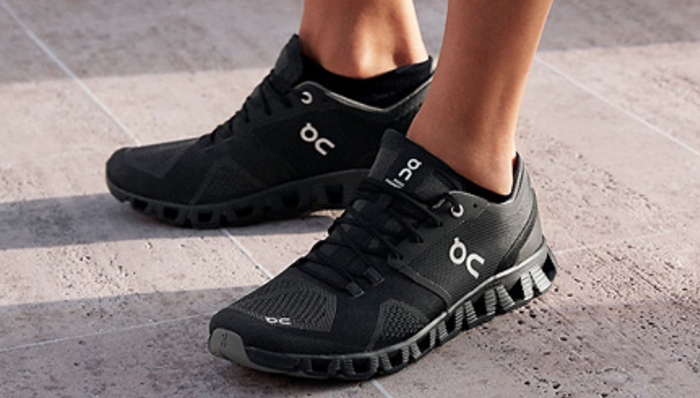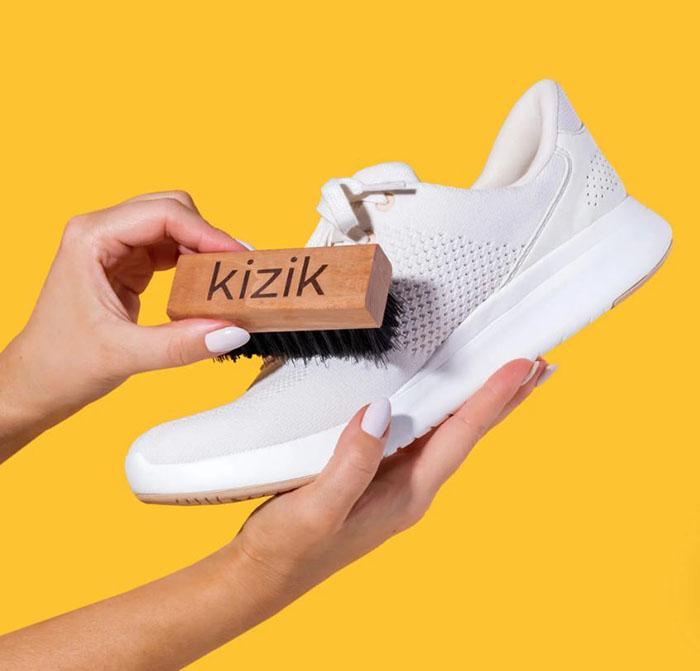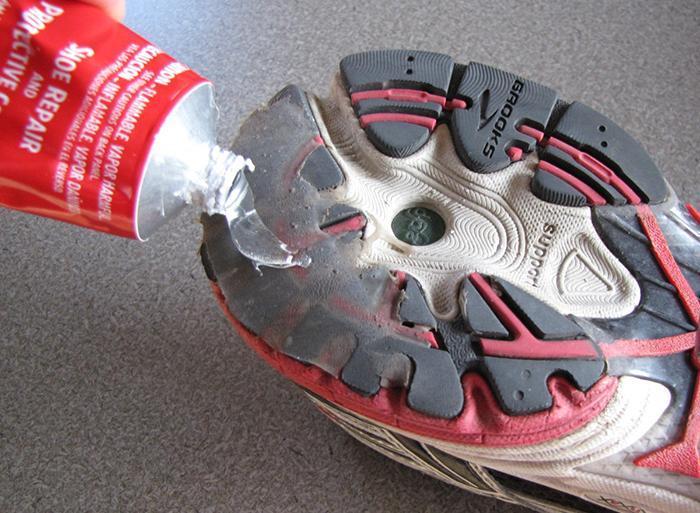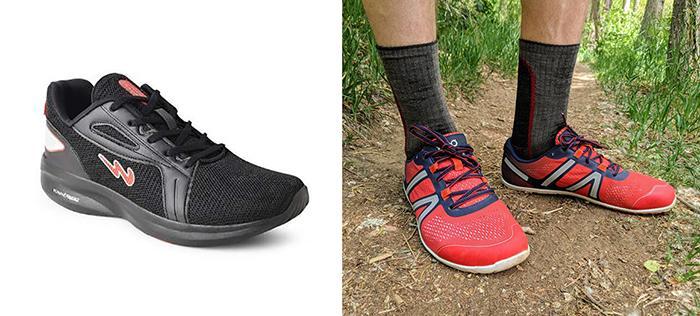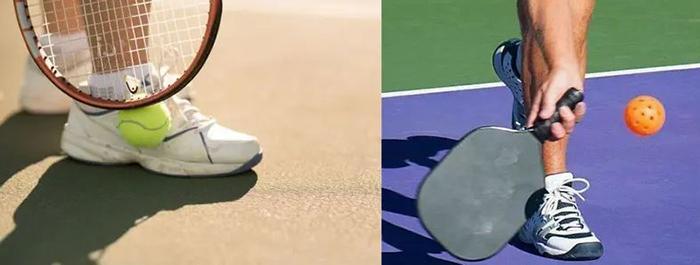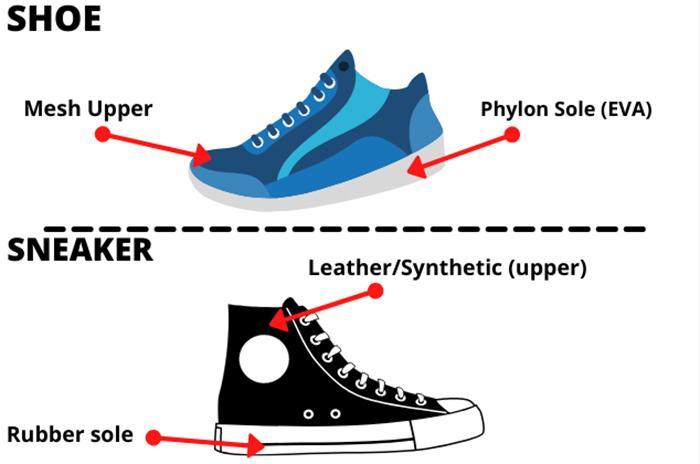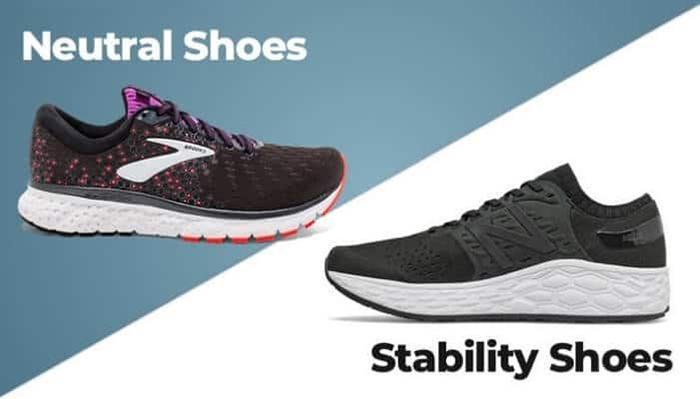From the breathtaking pirouettes to elegant arabesques, ballet is a captivating and beautiful form of dance that countless individuals worldwide have fallen in love with.
At the foundation of every dancer’s grace and poise are properly tied ballet shoes – a crucial element in ensuring comfort, safety, and optimal performance.
You Are Watching: How To Tie A Ballet Shoe Updated 01/2025
In this blog post, we will guide you through different types of ballet shoes such as leather, canvas, and satin, provide you with an easy-to-follow step-by-step process on how to tie your ballet shoes for ultimate security and support.
Importance Of Properly Tying Ballet Shoes
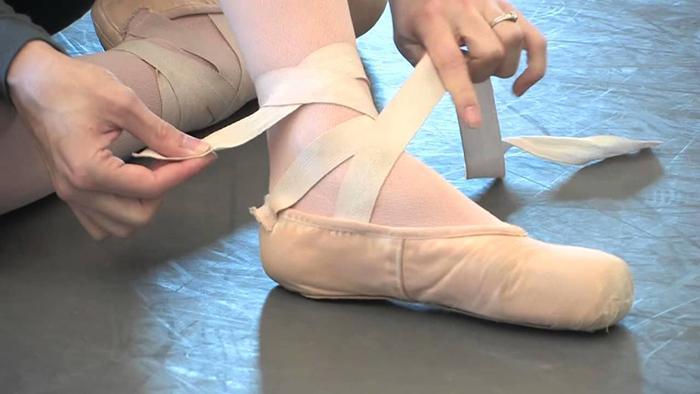
Properly tying ballet shoes is crucial for both beginners and experienced dancers alike. Ensuring that your shoes are tied correctly not only maximizes comfort but also minimizes the risk of injuries, such as twisted ankles or falls due to loose ribbons.
In addition to providing safety benefits, well-tied ballet shoes also improve the overall aesthetic of a dancer’s movements.
A secure fit ensures that the shoe moves in harmony with the foot while executing steps like pliés and relevés.
Types Of Ballet Shoes
Leather
Leather ballet shoes are a popular choice for many dancers, especially those who are just beginning their adult ballerina journey.
These shoes offer comfort and durability, making them perfect for long hours of dance classes and rehearsals.
Many dance stores carry leather options such as Sansha split sole canvas shoes, which provide an excellent balance between flexibility and support.
To customize the fit of your leather ballet shoe, you can sew criss-cross elastics using a needle and thread or purchase ready-made kits like Bunhead’s Stitch Kit for added convenience.
After attaching elastics to ballet slippers, mark the ribbon placement with a permanent marker before sewing it in place with safety pins.
Canvas
Read More : Are Crocs Closed Toe Shoes Updated 01/2025
One popular choice among ballet dancers and beginners alike is the canvas ballet shoe. Due to their lightweight and breathable fabric, these shoes ensure comfort during long hours of dancing while impeccably molding to the shape of your foot.
Canvas shoes also have a fantastic advantage when it comes to maintenance – you can simply toss them in the washing machine whenever needed!
To extend their lifespan even more, adult ballerinas like those involved in the Adult Ballerina Project can use Sansha split sole canvas shoes which evenly distribute pressure across your feet.
Satin
Satin ballet shoes are a popular choice among dancers who prefer the sleek and elegant look of satin fabric.
Satin shoes are typically made of high-quality materials that provide durability and comfort to the dancer’s feet.
However, tying satin ballet shoes can be trickier than other types of ballet shoes because they tend to slip off easily if not tied correctly.
To ensure a secure fit, it is recommended that you tie your satin ballet shoes tightly enough so that your heel stays snug inside the shoe but not too tight that it causes discomfort or pain.
Step-by-Step Guide To Tying Ballet Shoes
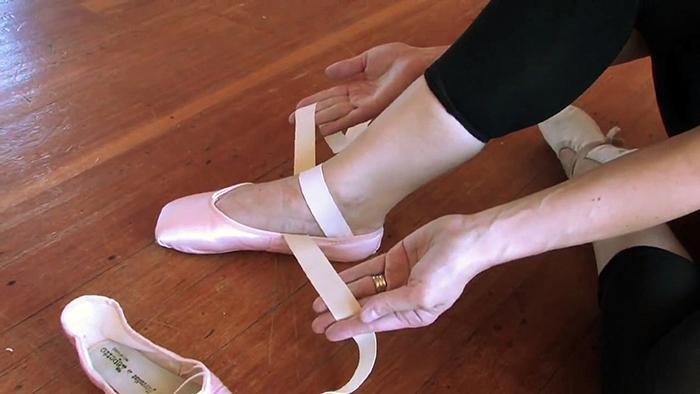
Preparing The Shoe
Before you can start tying your ballet shoes, it’s important to prepare them properly. Begin by ensuring that the shoes fit snugly and comfortably around your foot.
For canvas or leather ballet slippers, you may need to sew elastic straps onto both sides of the shoe to keep them in place while dancing.
If you’re using satin pointe shoes, they will require special preparation before each wear.
Using a needle and thread, sew ribbons onto both sides of the shoe so that they tie securely around your ankle.
Read More : How Long Does Shoe Goo Take To Dry Updated 01/2025
By taking care to properly prepare your ballet shoes before tying them up, you’ll ensure a comfortable and secure fit for optimal performance during dance class or practice sessions.
Tying The Ribbon
One of the most crucial steps in tying ballet shoes is properly securing the ribbon. The ribbon helps keep the shoe in place and provides additional support for the foot.
To begin, first loosen both ribbons and make sure they are centered on the heel. Then, cross each ribbon over one another around the ankle and bring them to the front of your leg, making a bow at a comfortable tightness level for you.
Remember not to tie it too tight as this may cause discomfort or restrict movement during dancing.
The type of ballet shoe you have will determine how best to tie your ribbon.
Leather shoes usually have thicker ribbons that require more wrapping around your ankle compared to canvas or satin shoes which tend to be more delicate with thinner straps requiring fewer wraps while also being tied less tightly overall.
Tips For A Secure And Comfortable Fit
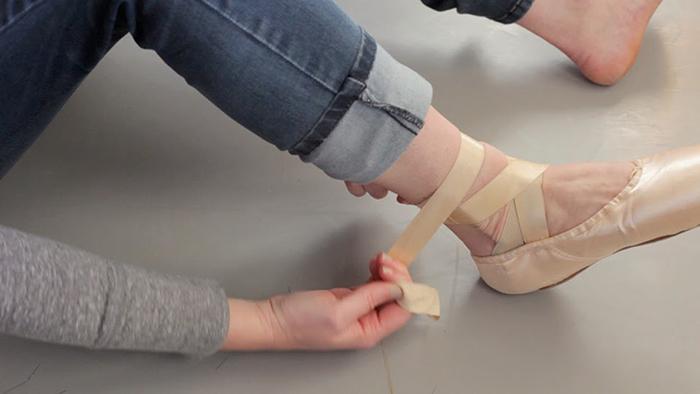
When it comes to ballet shoes, achieving a secure and comfortable fit is crucial for optimum performance.
- Firstly, make sure that your shoes are the right size.
- Secondly, consider adding criss-cross elastics to your shoes.
- Thirdly, if your shoes don’t come with ribbons pre-attached, sew them on yourself using a needle and thread.
- Fourthly, experiment with different types of padding to find what works best for you.
- Finally, be mindful of how often you’re wearing your ballet shoes – they can quickly become worn down which can affect their fit and supportiveness over time.
By following these simple tips not only will you look great in class but importantly ensure maximum comfort while performing like a superstar!
Conclusion
In conclusion, properly tying your ballet shoes is crucial for a secure and comfortable fit.
Whether you are wearing leather, canvas, or satin shoes, following the correct steps can make all the difference in your performance.
Remember to prepare the shoe before tying the ribbon and consider using criss-cross elastics for added support.
And if you ever need to sew elastics onto your slippers, check out Bunhead’s Stitch Kit for an easy solution.
Sources: https://www.centuryinshoes.com
Category: Shoes Care

